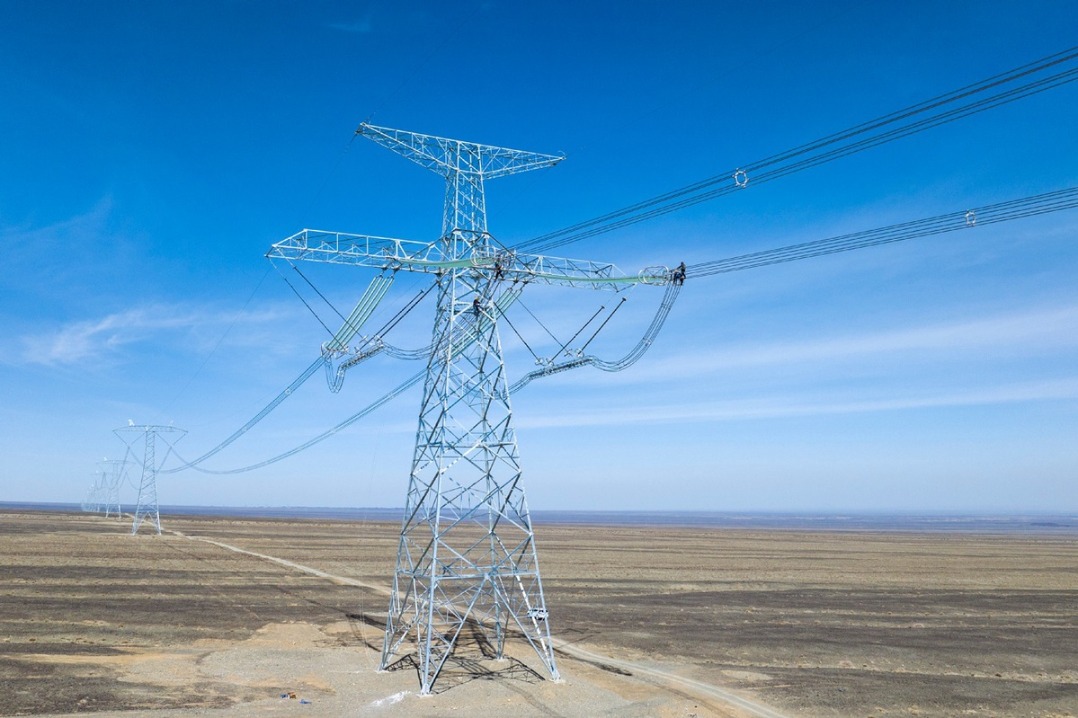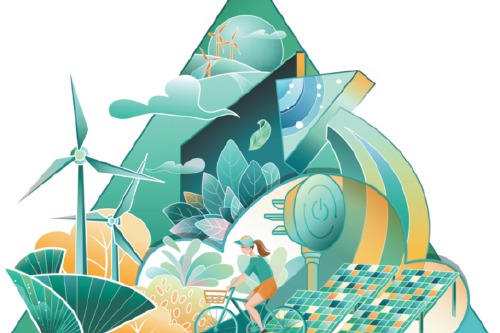Finger-pointing doesn't point to green planet: China Daily editorial


Some irresponsible remarks made by a senior European Union official on China's newly announced 2035 climate pledges have once again revealed the pitfalls of selective perception and double standards in global climate governance. European Commissioner for Climate, Net Zero and Clean Growth Wopke Hoekstra's claim on Thursday that China's plan unveiled on Wednesday falls "well short" of expectations betrays the tendency of some developed economies to point fingers at others while ignoring their own shortcomings.
China setting its 2035 climate goals is a milestone in the nation's long-term road map toward green, low-carbon development. The targets include significantly increasing the share of nonfossil fuels in the energy mix, boosting installed renewable energy capacity, cutting carbon intensity per unit of GDP, and achieving steady reductions in greenhouse gas emissions. These pledges form part of China's comprehensive strategy to peak carbon emissions before 2030 and realize carbon neutrality before 2060. By articulating its objectives for 2035, China has not only set out its domestic commitments for the period till then, but also injected new momentum into global climate efforts at a critical juncture when some are trying to backpedal on the cause.
Yet instead of acknowledging China's concrete progress and scientific forward planning, the EU climate chief chose to disparage the announcement, calling it "inadequate". In a written response, a Chinese Foreign Ministry spokesperson rightly rejected the criticism as "hypocritical", noting that China has already made great strides in its energy transformation and green development.
The facts speak louder than words. Over the past decade, China has led the world in renewable energy investment and deployment. Its installed capacity of wind, solar and hydropower ranks first globally. The country is also the largest producer and user of new energy vehicles, a sector whose rapid development is helping accelerate the global transition away from fossil fuels. Moreover, China's carbon intensity has fallen by more than 35 percent since 2010, meaning its economy is producing far fewer emissions per unit of output. These achievements underscore China's commitment to practical, measurable results rather than empty slogans.
In stark contrast, the EU's own record should give its officials pause before casting aspersions on others. While the bloc has long projected itself as a "climate leader", its performance has been uneven and increasingly under strain. Recent reports show that Europe's carbon emissions cuts are slowing, and its renewable energy rollout faces serious bottlenecks due to political divisions, energy security concerns and financing constraints. Even within the core decision-making circle of the EU, debates continue over whether its ambitious targets are realistically achievable without undermining industrial competitiveness and social stability. Against this backdrop, for Brussels to lecture Beijing is patronizing and uncalled-for.
Instead of indulging in irresponsible criticism, the EU should strengthen communication and cooperation with China. The path to a greener planet lies in working together, sharing technologies and coordinating policies, not in politicizing climate issues or indulging in a blame game.
China's 2035 climate pledges are significant not only for the country itself but for the world. As the largest developing country, China faces significant challenges balancing economic growth, social progress and emissions reduction. Yet it has chosen to accelerate its green transformation, recognizing both the responsibility and the opportunity to contribute to global climate action. That choice deserves recognition, not derision.
It is worth remembering that fairness and common but differentiated responsibilities are foundational principles of the international climate negotiations. Developed countries, which bear historical responsibility for the bulk of accumulated emissions, are obliged to take the lead in reducing greenhouse gases while also providing support — financial, technological and capacity-building — to developing countries. The EU should focus on honoring its own commitments, including delivering adequate climate finance to help developing nations cope with the impacts of climate change.
Dissing China's climate pledges will do nothing to advance the global fight against climate change. What the world needs today is greater unity, trust and cooperation. China has shown its vision, resolve and capacity in charting a path toward a low-carbon future. The EU should cast aside its double standards, reflect on its own shortcomings, and join hands with China and the broader international community to translate climate ambitions into real, shared progress for humanity.


































